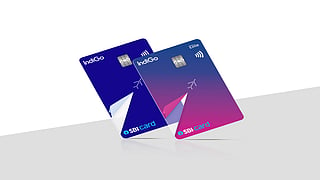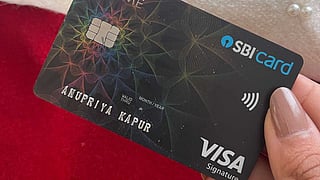Credit cards are becoming increasingly popular in India for getting access to quick advance funds. Top lenders such as HDFC Bank, SBI, and ICICI Bank, among others, are popular choices among credit card consumers for their range of products and services to meet diverse needs.
Credit cards are being widely adopted by users, especially the youth, in recent years due to the seamless digital application process as well as customised features to meet specific needs. Typically, the credit card limit is decided by the banks based on the income and credit score of the borrowers. If the borrowers pay their balance within the pre-defined due date, they don’t have to bear interest charges.
With the rising credit card usage, one may wonder what happens to the outstanding dues if the credit card owner passes away unexpectedly. Typically, in the event of the borrower’s unfortunate demise, banks go after their property and assets to recover the debt. Do the same regulations apply in the case of credit card debt? Let’s find out.
Recovery of dues in case of death of credit card holder
The credit card debt recovery policy may differ from bank to bank, but the overall regulations mostly remain identical. Unlike loans, there is no co-guarantor in credit cards. The repayment liability solely rests with the cardholder.
However, in case the borrower unexpectedly passes away, there is a scenario where the liability could be transferred to the legal heirs of the borrower. Though the banks and other credit card issuers can recover the outstanding dues from the legal heirs, there are certain limitations.
To be clear, the lenders cannot force the legal heirs or the family members to pay the credit card amount. The outstanding dues can only be recovered from the assets or estate after the death of the borrower. The liabilities of the legal heirs arise when they inherit the assets or the estate of the deceased credit card holder.
The amount can only be recovered from the legal heirs up to the value of the assets. If the outstanding due exceeds the value of the assets or estate of the borrower, the remaining amount is treated as bad debt, or non-performing assets (NPA), by the lender.
The legal heirs or family members can’t be forced to pay the credit card dues from their own earnings.
The RBI mandates banks and NBFCs to follow guidelines and clearly communicate all terms, including the terms of repayment to the borrower, while approving their advances. However, the RBI guidelines advise lenders against resorting to “intimidation or harassment of any kind, either verbal or physical, against any person in their debt collection efforts, including acts intended to humiliate publicly or intrude the privacy of the credit card holders’ family members, referees and friends, making threatening and anonymous calls or making false and misleading representations."
On the other hand, for secured credit cards like the FD-backed credit cards, the lenders can recover the outstanding dues by liquidating the fixed deposits associated with the credit cards.
It’s advisable for credit card holders to opt for credit card insurance, which serves as a safety net against fraud, unauthorised use and repayment of outstanding dues in case of the unfortunate death of the cardholder.
 RECOMMENDED FOR YOU
RECOMMENDED FOR YOU

SBI Card And IndiGo Launch Co-Branded Credit Card With Exclusive Travel Rewards: Fees, Features And More
 Sep 25, 2025
Sep 25, 2025

Payment Apps Turn Off Rent Payment Through Credit Cards
 Sep 17, 2025
Sep 17, 2025

Amazon, Flipkart Sales: How To Maximise Your Credit Card Rewards During Festive Season
 Sep 16, 2025
Sep 16, 2025

SEBI Proposes Standard Code For Smooth Transfer Of Securities To Legal Heirs
 Aug 12, 2025
Aug 12, 2025


